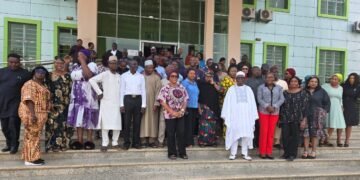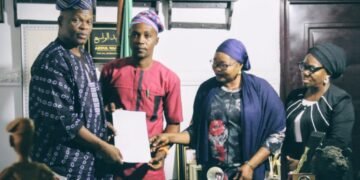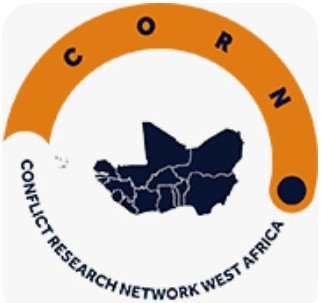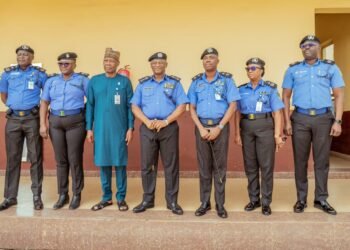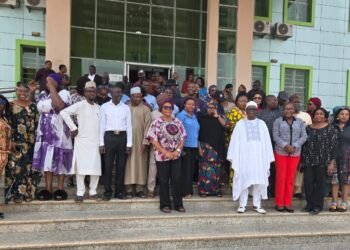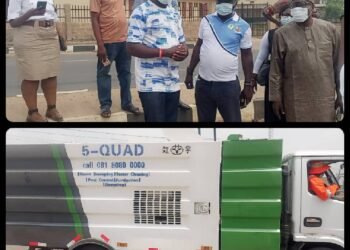In order to solve violence in the North Central zone of Nigeria, conflict and peacebuilding experts have advised the federal government to regulate community-based vigilante groups and integrate them into formal structures to ensure accountability and coherence.
They also recommended a shift from militarised interventions to deploying community-based approaches that build trust and prioritise prevention.
The experts made the submission at a webinar hosted by Conflict Research Network West Africa (CORN West Africa) where leading experts and practitioners came together to dissect the violence plaguing North Central Nigeria and to chart actionable pathways toward peace and human security.
Themed “Violence in North Central Nigeria: Pathways to Peace and Human Security,” the webinar panelists – Ms. Ier Jonathan-Ichaver, a social entrepreneur and justice advocate and founder of Sesor Empowerment Foundation; Dr. Joseph Ochogwu, the Director-General of the Institute for Peace and Conflict Resolution; Prof. Suchi Musa Plangshak, a criminologist and security studies scholar at the University of Jos; and Prof. Albert Chukwuma Okoli, an expert in security governance and strategic studies) – examined the structural, political, and social drivers of the conflict in the region.
Moderated by CORN West Africa’s Executive Director, Dr. Timipere Allison and Director of Strategy, Partnerships and Policy Development, Dr. Gbemisola Abiola, the panelists called for bold actions to end the violence in the northcentral Nigeria
While Professor Plangshack stated that the violence in North Central Nigeria is not merely a product of armed conflict but a reflection of systemic dysfunction rooted in marginalisation, exclusion, and the erosion of justice, Ms. Jonathan-Ichaver highlighted the inadequacy of state response, noting that security agencies often fail to act on early warnings and lack investigative capacity.
In his contribution, Professor Chukwuma Okoli recognised the rise of community-based security groups and warned of the dangers of unregulated vigilantism.
“When the state abdicates its role, non-state actors step in. But without oversight, they can become part of the problem,” Prof. Okoli said.
In his submission, Dr. Ochogwu, who noted that much progress has been made in containing the violence in North Central Nigeria, called for a more humane approach to reconciliation and peace building in the region, emphasising: “We must rehabilitate victims, not just count them. Local governments need resources and autonomy to lead reconciliation efforts. Peace can not be outsourced, it must be locally owned.”
Other roadmap to peace in the northcentral as suggested by the panelists included inclusive peace building which requires the active engagement of women, youth, and traditional leaders in dialogue and decision-making; grassroots initiatives that promote trust, reconciliation, and social cohesion, which should be supported and scaled; governance that must be restructured to decentralise power and strengthen local governments, enabling them to respond more effectively to community needs; and constitutional reforms that should should reflect Nigeria’s diversity, fostering a more inclusive and responsive political framework.
Others are justice and accountability which are essential; strengthening investigative capacity and prosecuting perpetrators which will help end impunity, and psychosocial support and resettlement programmes which are vital for restoring dignity and healing among victims.
The Executive Director of CORN West Africa, Dr Timipere Allison, who reaffirmed its commitment to collaborative research, policy innovation, and amplifying community voices, urged “government actors, civil society, academia, and international partners to act decisively, as the time for piecemeal interventions is over.”
He said: “What is needed now is a unified, strategic response that restores dignity, justice, and peace to the people of North Central Nigeria.”



